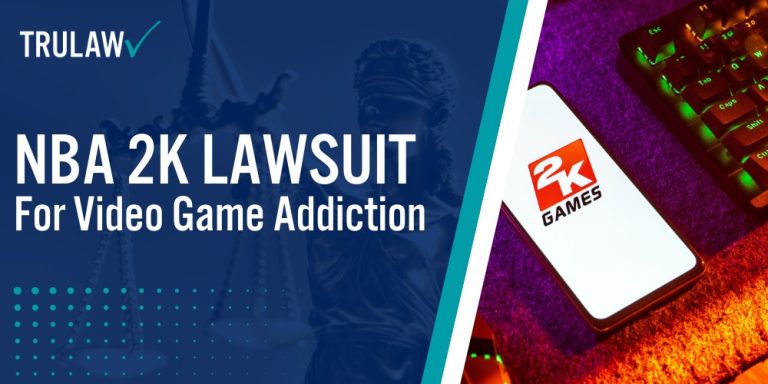Take-Two Interactive Software, the parent company of 2K Sports, faces mounting legal scrutiny over NBA 2K’s monetization practices.
Lawsuits allege the NBA 2K video game employs deceptive practices and gambling-like mechanics, particularly targeting younger players through loot boxes that are structurally and psychologically akin to gambling.
These legal challenges question whether Take-Two prioritizes profits over player well-being, raising concerns about how the game’s virtual currency systems (fictions created by game publishers) and randomized reward mechanics may exploit vulnerable populations.
What the NBA 2K Lawsuits Claim
Legal actions against Take-Two Interactive center on allegations that the company employs loot boxes and deceptive monetization practices that violate consumer protection laws and constitute illegal gambling.
Plaintiffs argue these systems were deliberately engineered to optimize revenue from vulnerable players.
Plaintiffs have brought forward multiple allegations against Take-Two Interactive:
- Plaintiffs allege NBA 2K uses “unfair, deceptive, greedy, and unlawful practices, including illegal gambling practices” that mislead consumers through exploitative game design mimicking casino-style gambling mechanics
- A 2022 lawsuit filed in Illinois on behalf of a minor sought $5 million in damages plus litigation costs, claiming loot boxes “psychologically distance” players from real-life financial consequences while encouraging continued spending
- Claims focus on how Take-Two allegedly prioritizes profits over player well-being, particularly regarding minors who lack the fully developed impulse control to recognize manipulative design patterns employed throughout the game
The original complaint was submitted to Winnebago County Circuit Court on January 11, 2022, before being transferred to Illinois Northern District Court on February 25, 2022.
The lawsuit emphasizes particular harm to young players who cannot fully grasp how these monetization systems exploit their psychology.
Please be advised that any projected or estimated settlement amounts mentioned on this page are general estimations and are not guaranteed.
These figures are based on opinions of legal experts based on the nature of the injuries and estimated costs of damages.
They are meant to provide a general idea of what settlement ranges could look like and should not be taken as definitive expectations for your case.
Contact TruLaw using the chat on this page to receive an instant case evaluation.
Current Status of NBA 2K Legal Claims
The legal landscape surrounding NBA 2K continues developing as courts examine whether loot box mechanics constitute illegal gambling.
The following developments define the current state of legal proceedings:
- As of 2025, there is not a certified class action lawsuit against Take-Two Interactive for NBA 2K; claims are being pursued individually
- Legal actions against Take-Two mirror similar lawsuits against other game publishers over loot box mechanics
- The British Columbia Supreme Court certified a class action against Electronic Arts over similar loot box practices on December 5, 2024, signaling growing judicial recognition
International precedents shape how courts evaluate loot box litigation.
Law firms have filed comparable suits against publishers including Activision Blizzard and Epic Games.
These parallel cases may influence Take-Two’s NBA 2K litigation.
If you or your child has experienced harm from NBA 2K’s game design, you may be eligible to seek compensation.
Contact TruLaw using the chat on this page to receive an instant case evaluation and determine whether you qualify to join others in filing a video game addiction lawsuit today.



